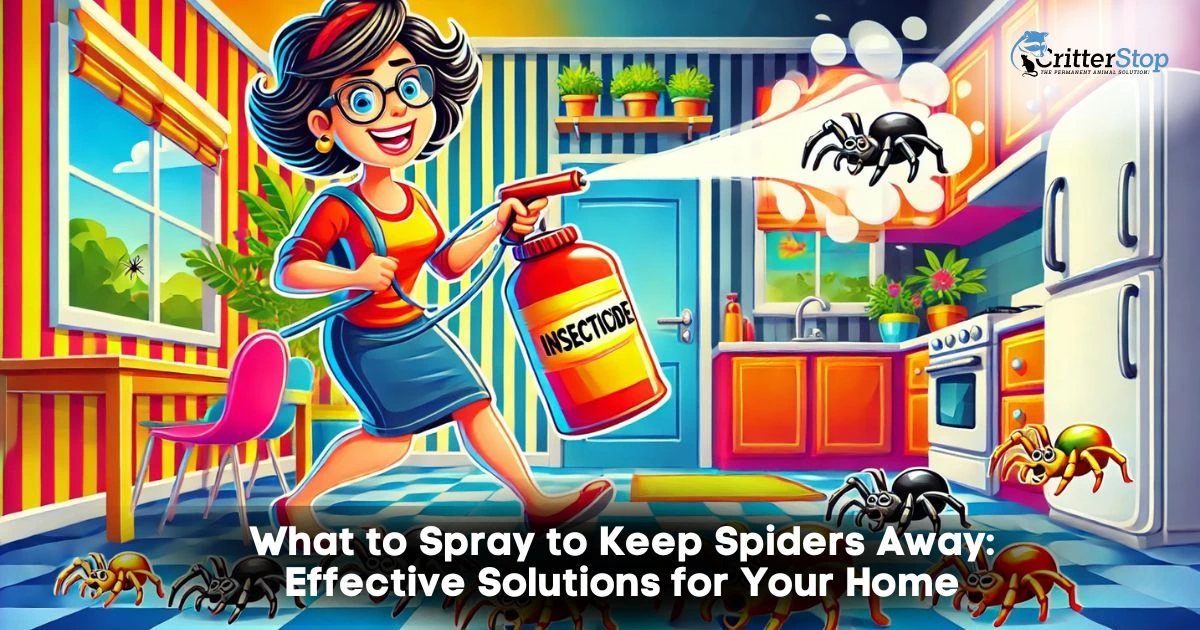
Identifying effective sprays is essential for those looking to maintain a spider-free environment. Natural solutions like essential oils, particularly peppermint or tea tree oil diluted in water, are effective repellents. These options deter spiders and offer a pleasant scent for the home.
Chemical sprays specifically formulated to repel spiders are also available. These products typically contain pyrethroids or other active ingredients that effectively target spiders and other pests. Homeowners should carefully follow usage instructions to ensure safety and efficacy.
Understanding which sprays can effectively keep spiders away can transform a living space into a more comfortable and inviting area free from these eight-legged creatures. Exploring the various options can help individuals choose the most suitable solution tailored to their needs.

Spiders play essential roles in the ecosystem, yet they often invade homes, prompting the need for effective repellents. Understanding spider behavior and the effectiveness of various repellents is crucial for effective pest management.
Spiders thrive in various environments, commonly found in gardens, basements, and attics. They prefer dark, undisturbed areas, where they can create webs and hunt for insects.
Different species exhibit unique behaviors; for instance, some are more aggressive, while others are reclusive. Knowledge of specific spider species can guide the choice of repellents.
Cleanliness and clutter reduction in living spaces are essential to keep spiders at bay. Removing webs, sealing cracks, and minimizing outdoor lights also help deter these pests.
Natural repellents utilize essential oils like peppermint, tea tree, and citrus. These oils can effectively deter spiders without harmful chemicals.
Using a spray with natural ingredients is safer for homes with children and pets. Many people prefer these options for their non-toxic properties while achieving effective pest control.
Application methods vary, but spraying around entry points and potential spider habitats ensures better results. Regular reapplication, especially after cleaning or rain, is necessary to maintain efficacy.
Choosing natural repellents supports health and environmental safety while effectively managing spider populations.

Natural sprays and solutions can effectively keep spiders away without using harsh chemicals. These remedies often rely on specific scents and ingredients that spiders find unappealing.
Creating homemade spider repellents is both simple and cost-effective. Common ingredients include vinegar, essential oils, and citrus. Here are a few effective recipes:
These solutions can be reapplied weekly for better results.
Several commercial natural repellents are available for those preferring ready-made options. Many use essential oils known to deter spiders, such as peppermint, eucalyptus, and citronella.
When selecting a product, consider the following factors:
Popular brands include EcoSMART and Wondercide, which provide various natural pest control options. These products offer an additional layer of protection against spiders in the home.
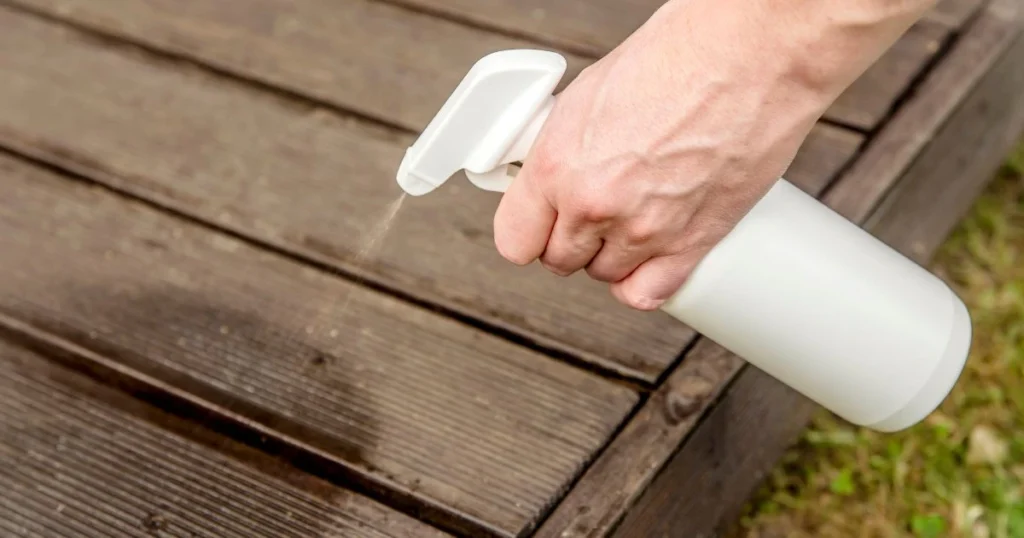
Essential oils and natural aromatics can be effective in repelling spiders. Certain scents deter spiders, making these substances a practical choice for those looking to keep their homes spider-free.
Several essential oils are known for their ability to repel spiders. Some of the most effective include:
Combining these oils can enhance effectiveness. It is important to use high-quality essential oils, as lower-quality options may lack the necessary potency.
Creating aromatic blends for spider deterrence is straightforward. A common method involves mixing essential oils with water in a spray bottle. The typical ratio is about 10-15 drops of essential oil per cup of water.
Shake the mixture well before each use. Spray areas where spiders are likely to enter, such as windowsills, doorways, and basement corners.
Reapplication every few weeks or after heavy cleaning ensures the scents remain strong. Individuals may also experiment with adding other natural repellents, such as vinegar or citrus peels, emitting scents that keep spiders away.
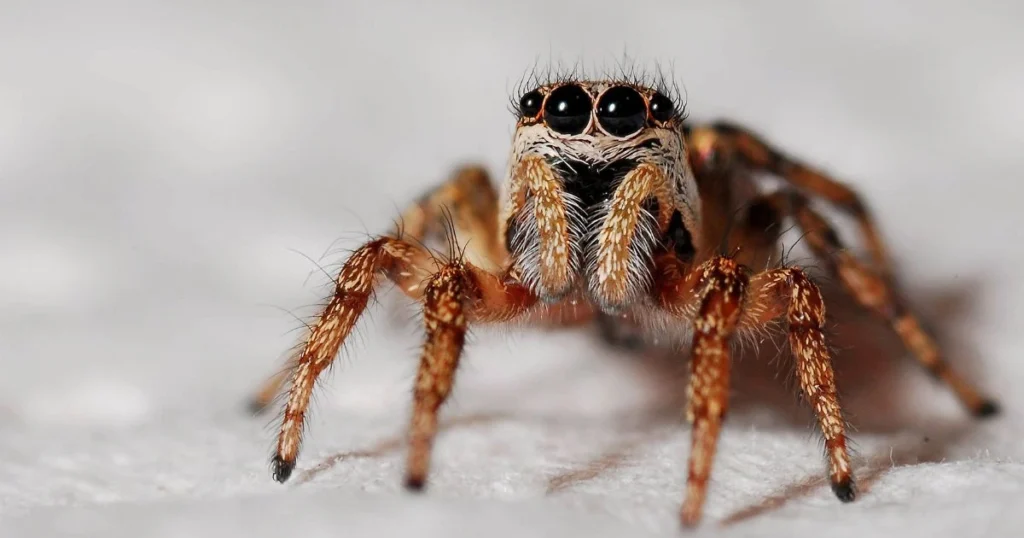
Certain plants possess natural properties that can help deter spiders from settling in gardens and homes. By incorporating specific botanical deterrents, individuals can create an inhospitable environment for these pests without harsh chemicals.
Several plants are known for their ability to repel spiders. The following are effective options:
To maximize effectiveness, planting these species in strategic locations ensures their oils disperse into the air, creating a natural barrier.
Integrating spider-repelling plants into the garden requires careful planning. Here are a few tips:
Implementing these strategies creates a dual-purpose garden, combining beauty with functionality in spider control.
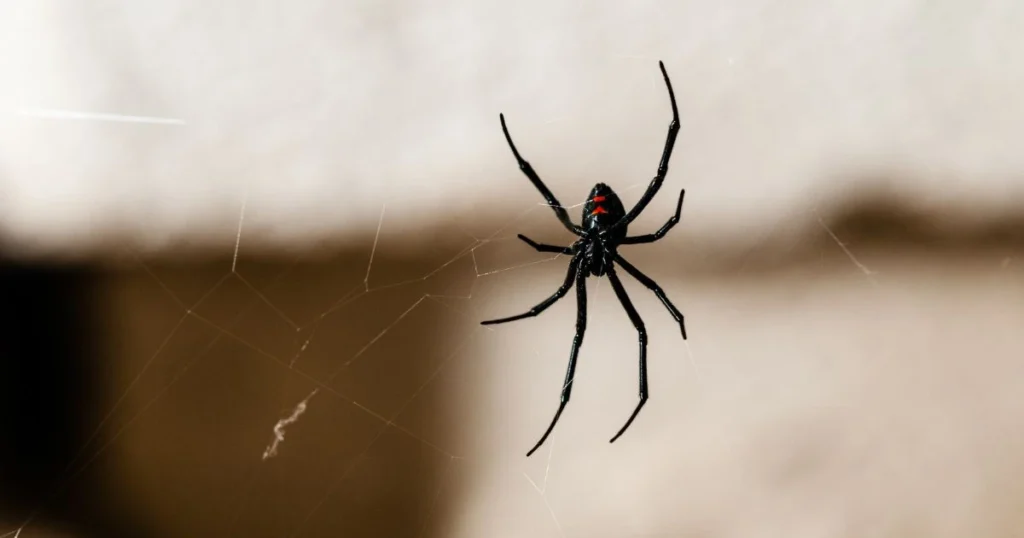
Taking proactive steps can significantly minimize the likelihood of a spider infestation. Maintaining a clean environment and sealing potential entry points are effective strategies to keep spiders out of the house.
Inspecting the home for gaps and cracks is essential. Spiders often enter through:
Ensuring that windows and doors close tightly can help. Installing weather stripping or caulk in areas where air leaks are present blocks potential entry points.
Check for holes in screens and repair them. Also, consider placing door sweeps at the bottom of exterior doors.
Examine the foundation and walls regularly for cracks. Filling these with appropriate sealants can deter spiders and other pests.
A clutter-free home is less inviting to spiders. Regular cleaning helps remove spider webs and their food sources.
Focus on these areas during cleaning:
Using a vacuum to remove webs and insects from corners and crevices is effective. Additionally, dusting frequently helps reduce potential hiding spots.
Keep food sealed and store it in airtight containers. This approach minimizes attracting insects that may, in turn, attract spiders.
Also, consider removing outdoor debris. Yard waste or stacked firewood near the house create ideal shelters for spiders, and maintaining the exterior can further reduce spider access.
Applying spider repellents safely is essential to ensure effectiveness while minimizing risks to health and the environment. Understanding best practices for application and considering safety around pets and children is vital for responsible usage.
When spraying spider repellents, select a product specifically designed for spiders. Read the label for instructions and recommended areas of application.
Additionally, avoid spraying directly onto surfaces where food is prepared. Waiting until surfaces dry before re-entering the area can also enhance safety.
Spraying repellents requires extra caution in homes with pets and children. Following safety guidelines helps prevent accidental exposure and health risks.
Adhering to these safety practices can ensure effective spider control while safeguarding the household environment.
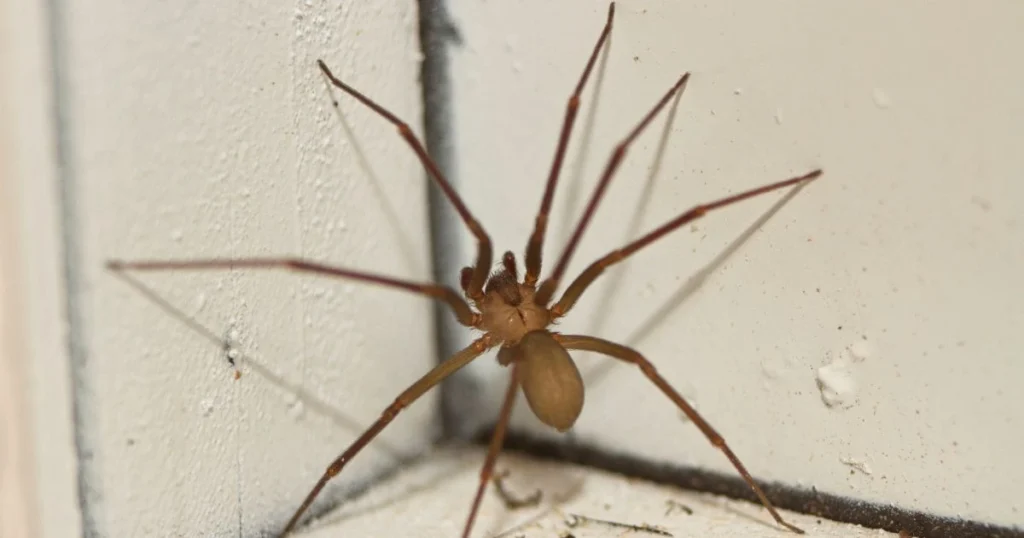
Evaluating spider repellents involves monitoring spider activity and knowing when to reapply the treatments. This ensures the chosen method is effective and provides long-term protection.
Consistent monitoring is essential to determining the effectiveness of spider repellents. Individuals should regularly check areas prone to spider activity, such as corners, basements, and crawl spaces.
Keeping a log can help track sightings, noting the locations and frequency of spider appearances. If activity decreases after using a repellent, it indicates effectiveness. Conversely, a different repellent or approach may be suggested if spiders persist. Observing changes in spider behavior and populations allows for timely adjustments in strategy.
The frequency of reapplication is crucial to maintaining spider control. Most repellents, particularly those composed of natural ingredients, lose effectiveness over time.
Generally, it's advisable to reapply chemical sprays every 30 days for optimal results. For natural solutions like essential oils, reapplication may be needed more frequently, especially after rain or cleaning. Weather conditions like humidity and temperature can also influence how long the repellent lasts. Always follow the manufacturer's guidelines for best practices and consider environmental factors when planning maintenance.
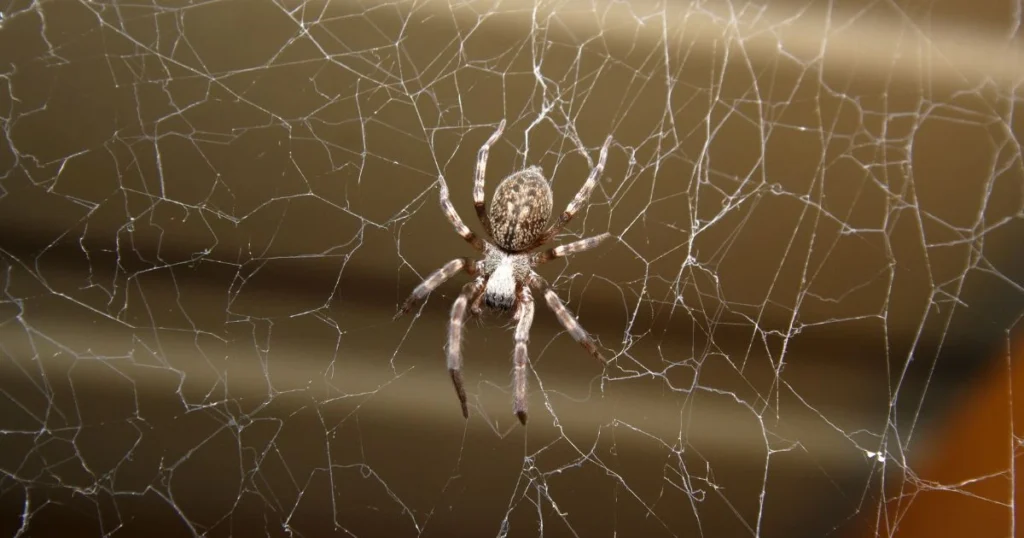
Securing professional assistance can provide effective and lasting results when dealing with spider infestations. This section will address when to consult experts and the benefits of choosing professional treatments over DIY methods.
Homeowners should consider consulting pest control experts when encountering persistent spider problems. If individuals notice a significant increase in spider activity or find multiple webs, this may indicate an underlying issue.
Also, professional intervention might be necessary if typical sprays to keep spiders away are ineffective. Expert services, like those from Critter Stop, can provide tailored solutions based on specific environments. For those unsure of the extent of their infestation or the safety of their home, it is advisable to call for a free inspection at (214) 234-2616.
Professional pest control offers several advantages for spider management. Treatments are often more potent than over-the-counter sprays, and techniques used by experts target the source of the issue rather than just the visible spiders.
Professional companies like Critter Stop have extensive knowledge of spider behavior, ensuring that preventive measures are implemented effectively. Their reputation for high-quality service and strong customer reviews make them a reliable choice for those seeking pest removal. Engaging professionals saves time and provides peace of mind, knowing experts are handling the problem.
Effective methods and natural solutions can help manage spiders around homes and outdoor spaces. The following subsections cover specific sprays, scents, and plants that can safely deter spiders.
Natural sprays containing essential oils like peppermint, tea tree, and citrus are effective against spiders. Spraying these diluted solutions around patios and gardens can create an unwelcoming environment for spiders.
Lavender, mint, and cinnamon are smells known to repel spiders and are generally safe for pets. Using these scents in sprays or diffusers can help maintain a spider-free zone.
Strong scents like eucalyptus, tea tree oil, and black pepper deter spiders in closets and corners. Applying these with cotton balls or sprays can help mask the odors that attract them.
Plants like mint, lavender, and marigolds can act as natural deterrents. Placing these plants near entry points may discourage spiders from entering the home.
A natural way to repel spiders is to use a mixture of vinegar and water or essential oil sprays. These solutions are safe for the environment and effective when applied regularly around the home.
Sealing cracks and crevices and keeping areas clean and clutter-free are key methods. Regularly checking for gaps in windows and doors also minimizes the chances of spiders finding shelter indoors.
Citrus and vinegar scents are particularly effective in attics and basements. Spraying these areas with diluted vinegar or placing citrus peels can help reduce spider activity.
Common scents like peppermint, orange, and lemon are easy to find. They can be used in sprays or candles to help keep spiders at bay.
Regular maintenance, such as cleaning window sills and doors and using weather stripping, can create a more spider-resistant environment. Incorporating essential oils in these areas can also serve as a deterrent.
Using diatomaceous earth around the perimeter of patios and gardens can effectively deter spiders. Combining this with natural sprays also creates a comprehensive approach to keeping outdoor spaces spider-free.
Visit our Critter Library and learn more about our furry friends







